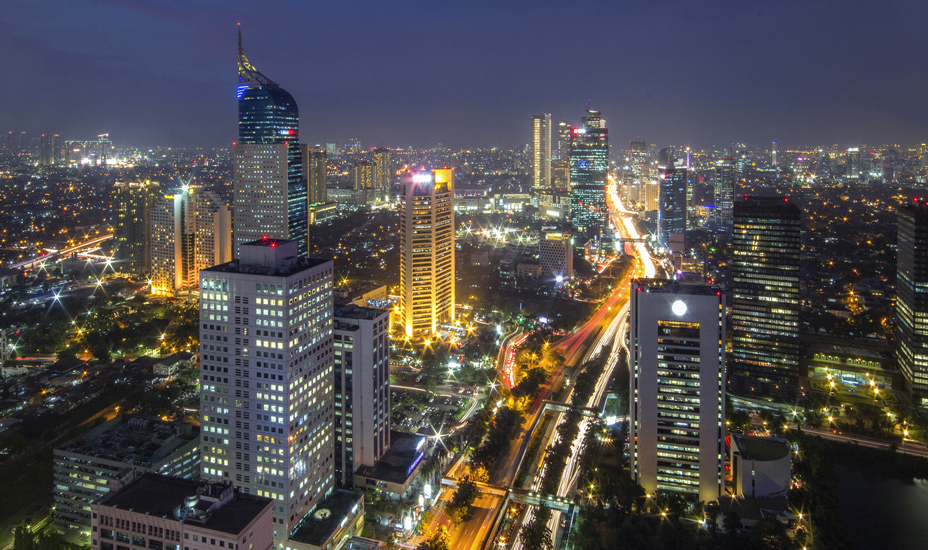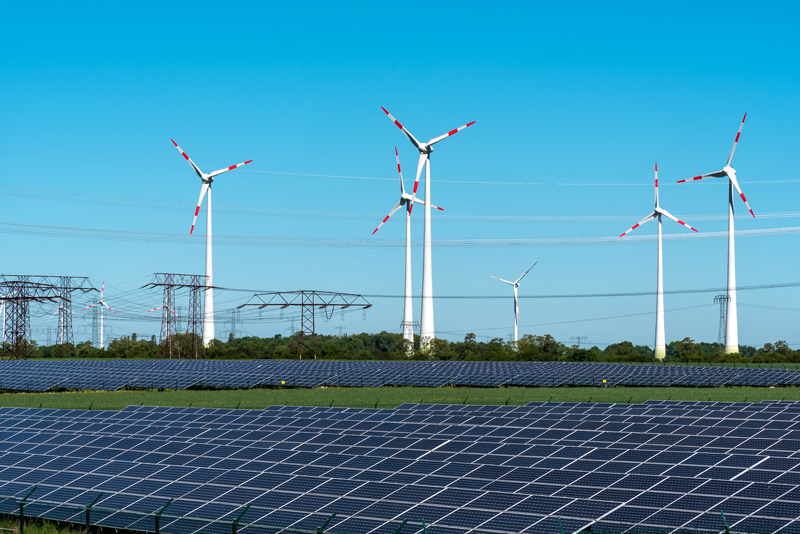
Energy- and water-efficiency requirements adopted in Jakarta have opened the door for private investment in green buildings.
 By Inae Riveras, IFC Communications
By Inae Riveras, IFC Communications
As Indonesia transforms from a rural to an urban economy, its cities are expanding faster than those of any other Asian country. So when government officials in the capital, Jakarta, looked for ways to cut greenhouse gas emissions, they knew that reducing the building sector’s carbon footprint would be crucial for their goal. Buildings already account for nearly 30 percent of the energy consumed in the country—and as more structures go up, so does that number.
For the last four years, regulations created with IFC’s support have mandated energy- and water-efficiency requirements for large buildings throughout the capital. This opened the door for the private sector, and investors responded: about 18 million square meters of new green floor area have since been built. Benefits included the avoidance of over 700,000 metric tons of carbon emissions and energy savings totaling almost $70 million in the last three years.
Just as Jakarta’s green building policies spurred private investment in climate-friendly solutions, a combination of smart policy reforms and innovative business models can stimulate investment that helps developing countries meet the climate targets laid out in the Paris Agreement, according to an IFC report released in early November.
The new report, Creating Markets for Climate Business, identifies seven industry sectors that are attractive to private investors. Already, more than $1 trillion in annual investments are flowing into climate-related projects in these areas—and the report shows how trillions more could be triggered by creating the right conditions for business.
An Equation for Creating Markets
IFC’s report outlines how private sector innovation, financing, and tools—combined with government reforms and new business models—can create markets and attract investments. It also estimates the potential for investments if those conditions are met:
- Renewable power investments could climb to $11 trillion a year by 2040—if reforms such as renewable-energy auctions, land-title reforms, and supportive energy-storage policy frameworks are implemented.
- Investments in off-grid solar and energy storage can reach $23 billion by 2025—if countries use differentiated tariffs, clear technical and safety standards, and targeted financial incentives while supporting new business models for community-based solar such as Pay-as-You-Go and innovative finance solutions such as securitized assets.
- Trillions of dollars of agribusiness investment can become more "climate-smart"—if governments ensure property rights, good transportation infrastructure, and regulations and fiscal policies that encourage climate-smart investment while promoting improved farmer-training practices and using financial innovations to provide working capital for farmers.
- Investments in green buildings could reach $3.4 trillion by 2025 in key emerging markets—if countries adopt better building codes and standards and create targeted financial incentives such as green-building certification and mandatory benchmarking of energy and water use. Other important reforms should encourage new utility business models, such as green mortgages and energy service companies.
- Trillions of dollars in investments in sustainable urban transportation can be mobilized in the coming decade—if governments issue mandates to enable infrastructure investments and adopt municipal transit plans that can spur innovations such as light rail.
- Investments in water supply and sanitation could exceed $13 trillion by 2030—if governments establish water pricing at predictable and sustainable levels to increase the creditworthiness of utilities while entering into public-private partnerships and adopting performance-based contracts.
- Investments in climate-smart urban waste management could reach $2 trillion—if cities work to attract private sector participation through improved regulatory and enforcement frameworks, using economic incentives and cost-recovery mechanisms such as feed-in tariffs, and driving waste-conscious consumer behavior.
Throughout the new report, examples of climate- and business-friendly policies and strategies guide investors, banks, policy-makers, and companies. The publication also recognizes that an array of approaches can be tailored to countries’ specific climate-related needs and explains how arrangements such as public-private partnerships can offer unique answers.
A Priority of Global Proportions
The latest report is a follow-up to the Climate Investment Opportunities in Emerging Marketsreport issued by IFC last year, which found that the Paris Agreement could create $23 trillion in investment opportunities for 21 emerging-market countries.
Addressing the challenge of climate change from all of these angles is a strategic priority for IFC. Since 2005, IFC has invested $18.3 billion of its own funds and mobilized an additional $11 billion from other investors to finance climate-smart projects in several countries. We also offer tools and training for companies, and work with banks to develop green-finance products.

In many cases, these climate-smart projects inspire other institutional policies with the potential to create even more profound benefits. This has happened in Jakarta: after demonstrating the viability of green construction, the mandatory regulations have encouraged the adoption of more ambitious voluntary efforts such as IFC’s EDGE certification, which requires buildings to be at least 20 percent more efficient than the market average.
Building on the success of the regulations there and also in the city of Bandung, IFC is helping the Indonesian government develop a national code toolkit so other cities, like Semarang and Makassar, can implement their own local green building regulations.
“We have worked hard to win the trust of the government and show the private sector that by using less we gain more,” says Azam Khan, IFC’s country manager for Indonesia, Malaysia and Timor-Leste. “Investments here in Indonesia are going green and we are working hard to drive investment and innovation in this sector.”
To read more about IFC’s work related to climate, visit www.ifc.org/climatebusiness, and about green buildings, visit www.edgebuildings.com.
Follow the conversation: #IFCmarkets
Published in November 2017